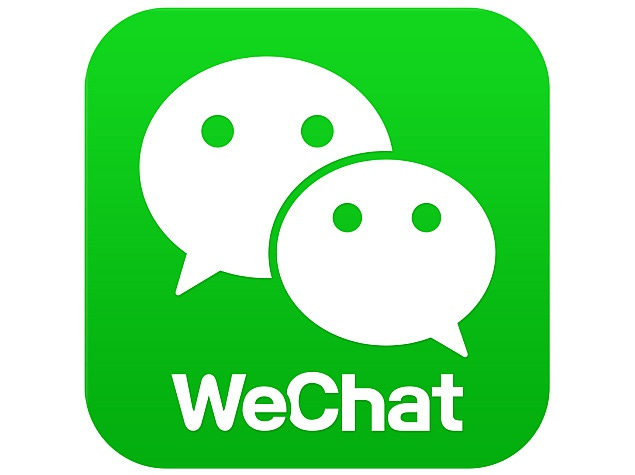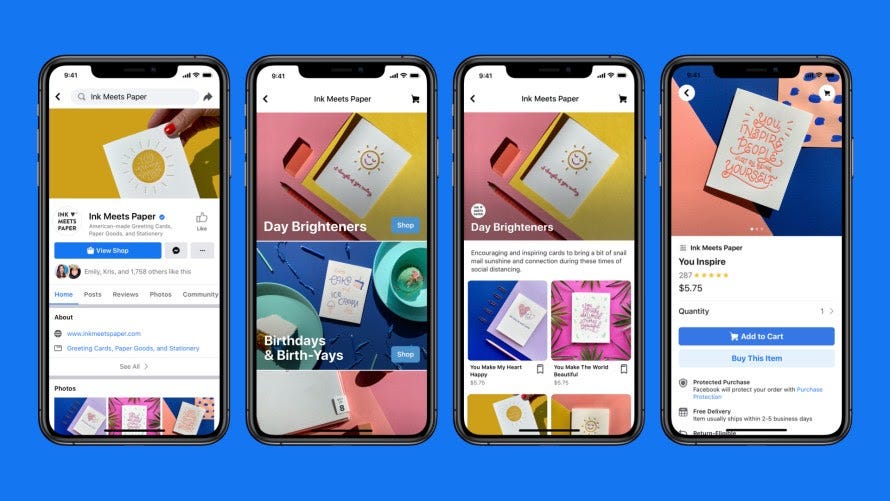Platforms Took Away User IDs. Now Apps Are Taking Out Platforms.
How Snap, WeChat, and Others Will Thrive Without Cookies & In-App IDs

Apple Eats Cookies
A looming challenge for Internet companies is the increasing inability to track activity off-site due to decisions from their underlying platforms.
For example, if you see an IKEA ad on Pinterest’s website, Pinterest would want to know if you later purchased from IKEA: was the ad was relevant, effective, and in fact no longer necessary to show you again? That’s possible today if you use Google’s Chrome browser to purchase from IKEA’s website, but not if you use Apple’s Safari browser.
That’s because Apple has already implemented anti-tracking, which makes advertising and commerce more difficult and less effective, although privacy becomes easier to enforce.

On browsers, the loss of 3rd-party cookies means no cross-site tracking tied to a universal ID. Safari was the first to block 3rd-party cookies, but nobody substantially changed how they operated until Chrome with its 60%+ market share announced it would discontinue support for 3rd-party cookies in 2021.
Within mobile apps (in-app on either Android or iOS), consumers still have a universal identifier known as a mobile advertising ID (MAID) assigned by the operating system. The MAID is the same across apps on a mobile device and is shared with all the apps by the operating system. It is resettable but doesn’t get shared with websites viewed in browsers. In-app accounts for 87%+ time spent on mobile and nearly 50% of all digital commerce, so much of mobile activity is still trackable across apps by large platforms such as Google and app analytics firms such as Flurry (owned by Verizon).
Apple Chipping Away at In-App ID
You can imagine Internet companies being complacent about preparing for a world without MAIDs as they did for cookies. Afterall, how could Apple or Google remove MAIDs without threatening the app ecosystems they’ve built that rely on advertising and analytics to support and improve their services?
That said, the principles behind Apple’s privacy push in browsers seems incompatible with how it currently operates in-app with MAID. Apple’s competitors and partners all realize this inconsistency and must plan for it. Apple clearly has stated its company-level willingness to favor privacy over consumer experience, website security, and other unintended impacts. For example, Apple has explicitly said it would break single sign-in services across multiple websites owned by the same company in favor of privacy.
However, Apple couldn’t ever go as far as breaking persistent sign-in on the same app without completely ruining customer expectations. Imagine if you couldn’t stay signed in to your favorite email app on your phone and had to login each time to check email. You’d probably be willing to switch to Android.
So Apple has to allow same-app persistent identification, but it could take a page from cookies, and assign a different app ID to different apps instead of using the same MAID across all apps. As a result, individual apps couldn’t compare MAIDs on their own to build a profile of the user across apps. You’d essentially create 1st-party MAIDs (specific to each app) and end universal 3rd-party MAIDs (the way they work today across apps), providing more privacy to users at some cost of monetization and measurement.
Apps Now Eat Apple

Now what do you do if you rely on Apple’s platform to provide a cross-site service such as measurement or marketing? If you can’t track activity outside your properties (apps & websites), you bring the activity inside your platform.
Apple currently is battling over this very strategy with Tencent, the $500BN+ Chinese Internet company behind the WeChat messaging app, which has 1.2BN monthly active users. WeChat now features “mini-programs” which act as small apps that work within the WeChat app. WeChat is disintermediating Apple and its App Store by essentially allowing users to install mini-programs and use their WeChat ID instead of their Apple’s identifiers.
WeChat mini-programs mean the user never is “off-site” or “off-app” since the user can pretty much do anything within the app without having to login again to new services. The most popular mini-program last year was a commerce app that enabled travel bookings within WeChat. So in theory, that travel mini-program can effectively advertise, convert, and measure within Tencent’s ecosystem without worrying about MAIDs or cookies.

Facebook launched Facebook Shops last month. In essence, ecommerce retailers can now set up shops within the Facebook platform so users can be reached, converted, and measured all within Facebook. Users won’t have to login into yet another website to checkout or get personalized recommendations.

For the end customer, they can shop where they socialize, all using the same identity. It’s a better user experience, and privacy becomes much more manageable from the user’s perspective as there are fewer parties to hold accountable and interact with for possible data leakage of online activity.
Today, Snap confirmed its plans to expand its developer program to enable its own mini-program ecosystem:
“The change is a notable shift in strategy for Snap, which has kept its flagship app largely walled off from outside developers. While developers will only be able to offer limited, simpler versions of their apps within Snapchat, the move could eventually open up new sources of revenue for Snap, which is dependent on advertising.”
The more these Internet companies can bring activities within their own properties, the less business risk they face from changes by Apple and the more opportunity they create for themselves. Ironically, Apple may create a bigger threat for itself as apps experiment with mini-programs and other initiatives to bring traditionally external activities inside of popular apps and overlay their own IDs across these activities, making them more powerful.

In the years to come, we may see fewer apps across the phone’s home screen but ones with more depth and that can do a bit of everything.

